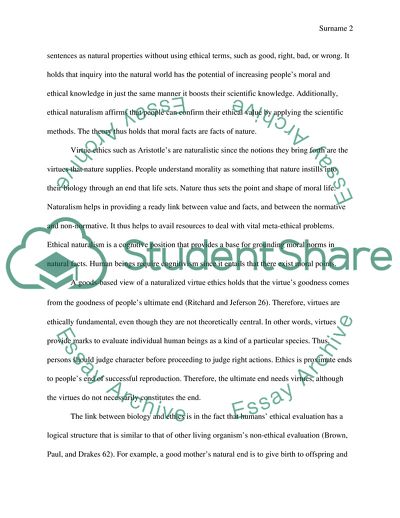Cite this document
(Using Naturalism in Solving Philosophical Ethics Issues Case Study Example | Topics and Well Written Essays - 1250 words, n.d.)
Using Naturalism in Solving Philosophical Ethics Issues Case Study Example | Topics and Well Written Essays - 1250 words. https://studentshare.org/philosophy/1851314-philosophical-ethics-naturalism
Using Naturalism in Solving Philosophical Ethics Issues Case Study Example | Topics and Well Written Essays - 1250 words. https://studentshare.org/philosophy/1851314-philosophical-ethics-naturalism
(Using Naturalism in Solving Philosophical Ethics Issues Case Study Example | Topics and Well Written Essays - 1250 Words)
Using Naturalism in Solving Philosophical Ethics Issues Case Study Example | Topics and Well Written Essays - 1250 Words. https://studentshare.org/philosophy/1851314-philosophical-ethics-naturalism.
Using Naturalism in Solving Philosophical Ethics Issues Case Study Example | Topics and Well Written Essays - 1250 Words. https://studentshare.org/philosophy/1851314-philosophical-ethics-naturalism.
“Using Naturalism in Solving Philosophical Ethics Issues Case Study Example | Topics and Well Written Essays - 1250 Words”. https://studentshare.org/philosophy/1851314-philosophical-ethics-naturalism.


